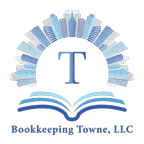Towne’s Two Cents | August 22, 2023 Edition

Every business owner’s story is unique, yet many will reach a point where they ask the same question – how can I help my business grow? Having a solid understanding of your company’s cash flow and how to manage it effectively are key components for growth.
The cash flow cycle of your business determines how your company’s goods or services generate dollars for continued business operations, company growth, debt repayment, and profit generation. When your business has ample cash on hand, you’re better positioned to pay employees, suppliers and vendors on time and invest cash back into your business. However, when growth opportunities such as employing more staff or purchasing new equipment would put a strain on your cash flow, then it may be time to consider other strategies.
A business loan or line of credit could enable you to take on larger projects and manage business growth while maintaining a positive cash flow.
Lately, we have helped many businesses with getting documents and information to their bankers because of businesses expanding & growing! It is really important to have accurate financials, especially your Balance Sheet – that is vital for the banker to review your assets, liability & the capital. The first question your banker should ask is how you plan to use the money for your business, followed by what your aspirations are for growing your business and managing cash flow – we recommend a 1 – 3 year projections statement from your bookkeeper or CPA to show your bank.
Bankers will also consider the five C’s: character, capital, capacity, collateral, and conditions.
Character
Although businesses don’t have credit scores, your company’s credit history and reputation help determine its creditworthiness. Banks evaluate your company’s debt repayment history, your business references, the quality of your product or service, and whether you have a good reputation.As a business owner, your personal handling of credit is also an excellent gauge of your likeliness to repay a business loan.
Capital
Your company’s capital is measured as a percentage of your total investment cost and lenders want to see that you have “skin in the game.” Your bank will consider your personal investment into your business as well as your business assets and retained earnings. The more capital you personally invest, the greater your commitment to the success of your business. When your own money is involved, it serves as an incentive to not default on a loan.Capacity

Most financial institutions want to ensure that your company’s cash flow allows for repayment of the loan according to its terms. Additional factors include the number and amount of any current outstanding debts compared to your expected monthly income. As a good rule of thumb, remember a simple calculation: for every $1 of debt, ideally your business would have at least $1.25 of cash flow.
Collateral
Collateral is the asset used to secure your business loan or line of credit, such as real estate, equipment, accounts receivable, vehicles, inventory, or other business assets. Your bank may also accept a second or third lien on a primary residence as collateral. Most banks lend only up to a certain percentage of the asset’s appraised value and may also factor in the asset’s ease of liquidation.In addition to collateral, some banks would like to see a personal guarantee from their borrowers. This practice puts the financial institution in a safer position and encourages the bank and the business owner to continuously work together to ensure the success of the business.
Conditions
This final variable pertains to the economy. Factors outside of your control, such as an economic downturn – in general or specifically within your industry – or the bank already having many loans within the same industry, may result in the bank passing on your loan because of a higher risk.Although every financial institution has its own parameters for analyzing a company’s creditworthiness, the five C’s are common evaluation methods. Overall, the bank and the business owner should form a strong relationship that meets the needs of both parties. This ensures that your business receives financing in order to grow, and the bank has measures in place to protect itself.
Credit Resource: www.bizjournals.com
Thank you all for reading!
Have questions about what to provide your bank? We’re here to help! Click here to schedule your Discovery Session!

Dolly Towne, CEO & Chief Foodie Bookkeeper
Bookkeeping Towne, LLC
Website: www.bookkeepingtowne.com
Email:hello@bookkeepingtowne.com
Phone: (401) 474-5229
